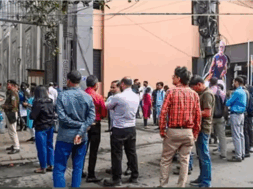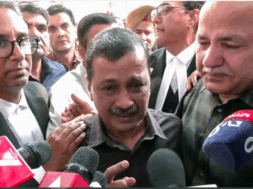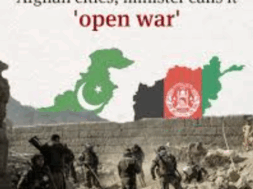
Pakistan: Lahore HC grants bail to Imran’s wife Bushra Bibi until May 23
Virendra Pandit
New Delhi: A day after exhorting his supporters to seek “Azadi”, which brought them back on the streets, former Prime Minister Imran Ahmed Khan Niazi reached the Lahore High Court (LHC) on Monday to seek bail in the fresh cases clamped by the government in connection with the last week’s riot and arson across Pakistan, that claimed around a dozen lives and wounded hundreds of people.
Amidst tight security, Khan, accompanied by his wife Bushra Bibi, reached the LHC to seek bail in cases registered against him for torching the house of the Corps Commander in Lahore Cantonment—also known as the Jinnah House—and other incidents of unprecedented violence that erupted after his arrest on May 9.
The LHC granted bail to Bushra Bibi in the Al-Qadir Trust case until May 23.
On Sunday, he had called for a nationwide “freedom” protest that brought his placard-holding supporters back on the streets in several cities. His remarks came in response to the Pakistan Army’s Inter-Services Public Relations (ISPR) Director-General Major General Ahmed Sharif Chaudhry’s statement calling the former PM a “hypocrite.”
Late on Saturday also, he harped on the same theme.
“Freedom does not come easily. You have to snatch it. You have to sacrifice for it,” the 70-year-old Pakistan Tehreek-e-Insaaf leader said in a speech broadcast on YouTube on Saturday night, a day after he was released amid high drama after the intervention of the Supreme Court.
He called for supporters to hold protests “at the end of your streets and villages” across the country on Sunday evening for one hour starting at 5:30 pm.
“I kept Pakistan’s flag high the world over. Never did the ISPR make such a statement. You should be ashamed of yourself. You have jumped into politics. Why don’t you make a political party,” Khan said in an hour-long maiden speech after the Islamabad High Court gave him blanket relief in all 145-plus cases registered against him, barred the authorities from arresting him in all the cases registered beyond May 9, and directed him to approach the LHC on May 15 for further relief.
After locking himself in the Islamabad High Court (IHC) premises on Sunday for hours, fearing re-arrest after getting bail on Friday, Khan returned to Lahore early on Saturday. Before leaving for home, he did not forget to hit out at the “imported government for kidnapping” him despite the IHC granting him bail in all cases.
Khan also blamed Pakistani Army chief General Asim Munir for his “abduction”.
In the Al Qadir Trust case, in which anti-corruption watchdog National Accountability Bureau (NAB) arrested the former cricketer-turned-politician on May 9, the IHC granted him pre-arrest bail for two weeks.
The Supreme Court had declared Khan’s arrest from the IHC premises illegal and referred the matter to the IHC.
The Punjab police on May 10 booked Khan and hundreds of his party workers for attacking and setting on fire at the Jinnah House in Lahore. It also registered five other FIRs against him for inciting his supporters to attack and damage the state buildings and military installations.
Khan, his deputy Shah Mahmood Qureshi, and others have been framed under murder, terrorism, and 20 other heinous offenses for attacking Jinnah House last Tuesday.
His arrest on Tuesday last by the Pakistan Rangers at the IHC premises triggered unrest in Pakistan until Friday, causing the destruction of dozens of military and state installations.
For the first time in Pakistan’s history, the protesters also stormed the army headquarters (GHQ) in Rawalpindi and torched the Corps Commander’s House in Lahore.
Punjab Inspector-General Police Dr. Usman Anwar told a press conference on Sunday that over 3,500 people have been arrested in Punjab province for their alleged involvement in the violence after Khan’s arrest. He said most of them will be tried in anti-terrorism courts.
Khan was ousted from power in April 2022 after losing a no-confidence vote in his leadership, which he alleged was part of a US-led conspiracy targeting him because of his independent foreign policy decisions on Russia, China, and Afghanistan.













